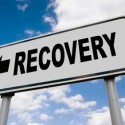Watch elders' alcohol habits
Fa-la-la! ‘Tis the holiday season, and there’s Nanna getting into the eggnog and batting her eyes. Or Pops, with a face as red as Santa Claus refilling his glass, laughing a little too much.
Nice that the old folks are having such a good time! They’ve worked hard for so many years. Now they can loosen up and be kids again. So what if they get a little looped at the family party?
So a lot.
No one wants to be the Grinch with an edict of joyless Puritanism. But for many people, drinking and aging don’t mix. The holiday party is a moment of fun and family togetherness. It may also be an opportunity to spot a burgeoning problem in the older generation.
An estimated one-third of older Americans who abuse alcohol or drugs don’t develop a problem until after they are 50. Some have a genetic blueprint for addiction that gets activated in later years; others slip into a pattern of what researchers call hazardous substance abuse: a level of consumption and a pattern of drinking that puts an older person at risk for health problems and injuries.
“People increase drinking after they retire; they drink because of loneliness, in response to life events such as the death of a spouse,” Houston physician John W. Culberson told an informal group on elder addiction at a recent meeting of the Gerontological Society of America.
But doctors generally don’t screen for problem drinking — and families would rather ignore it.
“There’s not a lot of motivation to do anything about it,” Culberson said.
Abuse of alcohol and legal drugs affects up to 17 percent of adults age 60 or older, according to government figures.
Unlike younger substance abusers, who get in trouble with the law or jeopardize their jobs and antagonize their families, older abusers often go unnoticed. They may no longer be employed; they may live alone. Who is there to detect a problem?
Physiologically, older people are less able to hold their liquor.
With the loss of body mass and decrease of water in the body, they tend to develop a higher concentration of alcohol in the blood when they drink. Kidneys and livers are not as efficient in removing alcohol from the blood.
In addition, many older men and women are taking medications (for heart disease, sleep disorders, pain and anxiety, for example) that interact badly with alcohol and with one another. Polypharmacy plus holiday punch can be hazardous to health.
“We spend considerable time on financial planning, but we spend very little time or money on emotional-retirement planning,” says Carol Colleran, co-author with Debra Jay of the Hazelden Guidebook: “Aging & Addiction: Helping Older Adults Overcome Alcohol or Medication Dependence.”
The good news is that treatment for late-onset substance abuse can be very effective. Older people tend to have good coping skills, and their support network of family and friends is usually intact. They are more likely to recover and change their drinking behavior than younger abusers, Colleran said.
It’s all about building a new life in later years. That’s something to cheer at the holiday party.
source: Denver Post

